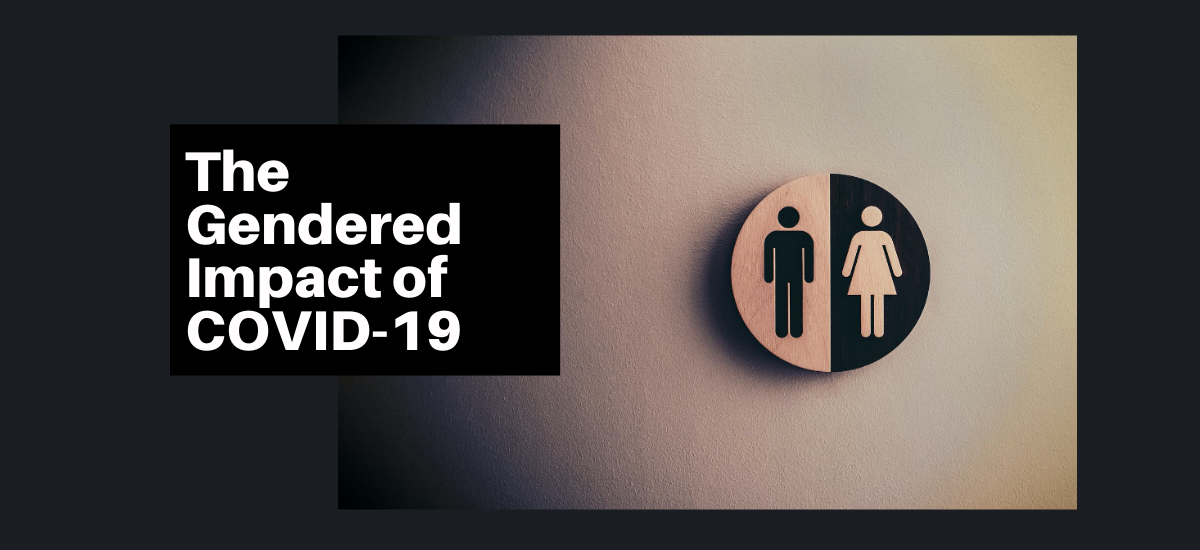
OPEN Silicon Valley webinar takes on Aamir Ibrahim’s views as a proponent of Pakistan’s tech potential
October 26, 2020
International Women’s Day | Conversations@Jazz
March 18, 2021The Gendered Impact of COVID-19
It is no secret that the impact of the COVID-19 has transformed societies entirely. TV screens are plastered with the latest stats on the number of cases, deaths, and recovery rates. Yet, the figures reveal little about its far-fetched impact on marginalized groups. The pandemic has exacerbated the already existing economic and social stresses that women and girls face.
A recent webinar organized by UN Women Pakistan focused on the gendered impact of COVID-19 and the private sector’s role in empowering women during these challenging times. The conversation addressed the policies introduced by companies in response to COVID-19 to support women along with the initiatives launched by various Corporate Social Responsibility departments to promote women’s livelihood and entrepreneurship.
The UNWomen webinar panel consisted of four qualified professionals serving in important positions in companies across the county. Moderated by a development professional, Shehnaz Kapadia, the panel of individuals included Aisha Sarwari, Head of Corporate Communications and Sustainability at Jazz and co-founder of Women’s Hub, Asma Yusuf, the Diversity & Inclusion Lead at Unilever Pakistan, Humayun Javed, Head of Corporate Communications at Interloop, and Rizwan Masoof Raja, Chief People Officer at Engro Pakistan.
The harsh realities surface when a woman joins the workplace. According to the International Labor Organization, Pakistan has the highest wage gap in the world, and women in Pakistan earn 34% less than men on average. Furthermore, Only 26% of women participate in the labor force in Pakistan. This low number can be attributed to both to a lack of supply and demand. Supply delineating when women are held back from joining the workplace due to archaic societal norms, and demand delineating when workplaces apply gender discriminatory policies leading to reduced recruitment and retainment of women in the workplace. When a woman does make it past the hurdles of conservative patriarchal bondage, she is met with a hostile work environment and other challenges such as access to and safety of transport. When a woman’s productivity is viewed against this cultural backdrop, many companies are forced to implement policies that enable women to be more productive employees — a win-win situation for both.
 Unfortunately, very few organizations in Pakistan understand the importance of inclusive policies. Jazz is among those few companies that focus on establishing a work-life balance by setting up inclusive policies to allow female employees to maximize their productivity. Female hiring had increased from 24% in 2018 to 30% in 2019. The company aims to increase female representation across all organizational divisions further. It operates with the belief that more women’s voices lead to better outcomes.
Unfortunately, very few organizations in Pakistan understand the importance of inclusive policies. Jazz is among those few companies that focus on establishing a work-life balance by setting up inclusive policies to allow female employees to maximize their productivity. Female hiring had increased from 24% in 2018 to 30% in 2019. The company aims to increase female representation across all organizational divisions further. It operates with the belief that more women’s voices lead to better outcomes.
Even before the pandemic hit, Jazz already had a mechanism in place for all employees to work remotely once a week. Working mothers were allowed an extra day to work remotely. In that sense, the organization was fully ready to transition to a remote-working setup following the COVID-19 response plan. While companies across the world struggled to make the switch, such an approach exemplified key learnings that Jazz exhibited; instead of waiting for a disaster to hit, the company understood the need to cater to employee safety and gender-related norms.
Similarly, during the webinar Unilever Pakistan announced that they are setting up an anonymous helpline that connects employees to a counselor. This is a timely initiative in the wake of the pandemic with female labor being forced to stay at home and subsequent rise in domestic abuse cases and the emergence of mental health issues amongst women. This, coupled with an employee well-being app, volunteer yoga, and Zumba classes, are being offered as an outlet for women to cope. With schools closed and children staying at home, women have had to shoulder greater household responsibilities during the crisis. Understanding that, Unilever Pakistan launched an online daycare program where parents could log their kids onto.
Several companies have adopted agile working policies during the pandemic. Through paid leaves, maternity benefits, and even providing an on-site daycare center to accommodate their children. During COVID-19, companies such as Engro are ensuring protocols on the site, guaranteeing testing for all employees and their families, along with on-site quarantine facilities.
The private sector has the potential to play a significant role in alleviating the immediate impacts of COVID-19 on women’s pre-existing social and economic vulnerabilities. However, it cannot do this alone. All stakeholders must come together and ensure a safe work environment for women, enabling them to combine work and family responsibilities, providing equal career and leadership roles, and creating gendered systems in the workplace, marketplace, and the community.







